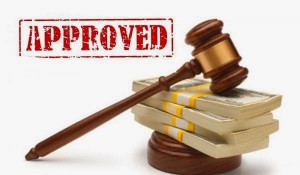A class action is a mass tort lawsuit in which many different plaintiffs who have suffered the same type of harm all sue in one big case. Class actions may be used to recover compensation for defective products or if an employer engages in sex discrimination or wage violations on a large scale. Class actions make it possible for wrongs to be righted when it would not make sense for an individual person to sue because the stakes are too low. For example, if an inexpensive product is defective, a class action allows for all of the individuals who bought the product to be compensated for the losses that resulted. Class actions can also make it easier for plaintiffs to take action in more serious cases, such as when hundreds or thousands of people are all made sick by a company that pollutes or by a drug that is dangerous. 
When a class action is formed, class action certification is required before the case can move forward. Essentially, this means that a judge agrees that the plaintiffs should be joined as a group and that it makes sense to hear all of their claims together. Class action certification is an essential part of making a class action claim and those who wish to pursue compensation using this legal technique should consult with an experienced class action lawyer for help taking legal action. Businesses that want to avoid being sued by a group of plaintiffs in a mass tort case may also object to class action certification. Sepahi Law Group, APC has extensive experience representing clients in class action litigation. Call today to speak with a San Diego class action lawyer who can provide the assistance you need with mass tort cases.
Understanding Class Action Certification
Rule 23 of the Federal Rules of Civil Procedure addresses class action certification. According to Rule 23, class action certification is appropriate if:
- The class of plaintiffs who wish to pursue legal action against the defendant is so larger that separating out the plaintiff’s claims is not practical.
- There are questions of law that are common to all of the claims made by the plaintiffs.
- There are questions of fact that are common to all of the claims made by all of the separate plaintiffs.
- The claims or the defenses of the named plaintiffs representing the class are typical of the claims and the defenses of all of the other plaintiffs who are members of the class.
- The named plaintiffs who are seeking class action certification will fairly and adequately protect the interests of the other members of the potential class.
The process of class action certification can be complicated and neither a plaintiff nor a defendant involved in a class action should try to argue for or against certification without being represented by a qualified and experienced attorney with knowledge of these types of legal matters. Sepahi Law Group, APC can provide the necessary legal assistance throughout an attempt to certify a class action. Call today to schedule a consultation with a San Diego class action lawyer and learn more.

